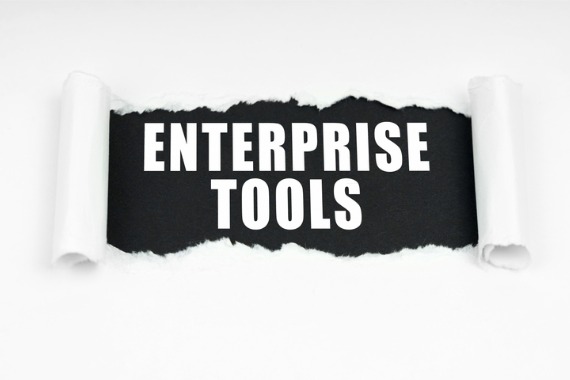Blockchain For The Cannabis Industry:
Have We Finally Realized Its Potential?
The blockchain’s immutable ledger is an efficient system for tracking cannabis products because of its potential to eliminate red tape and ensure complete transparency.
While prominent cryptocurrency exchanges attempt to provide more clarity on blockchain regulations for cannabis companies, for now at least, the government continues to be the primary obstacle.
But with increasing recognition of blockchain’s potential, state and federal regulatory bodies are warming up to its benefits.
What is blockchain’s potential in the cannabis industry?
When industry insiders began realizing its cannabis application, blockchain started to be seen as a cure-all for the industry’s security and banking woes in the United States.
Dramatic changes normalizing cryptocurrency for cannabis companies have paved the way for their acceptance legally, financially, or simply by reputation.
Take the development of companies like PotCoin, CannabisCoin, and HempCoin as examples. They have specifically created cryptocurrencies to facilitate cannabis transactions and as a solution to hoarding cash on-site or the lack of support from a legacy financial system.
Or consider the Crypto Cannabis Club, which allows cannabis consumers to use non-fungible tokens (NFTs) as membership cards to mash up virtual and real-world dispensary experiences. The club has partnerships with more than 30 cannabis accessory and product providers who offer membership discounts through a utility program.
These are real use cases of how certain players in the cannabis industry are taking notice of the uses of blockchain technology. And yet, the potential of blockchain for the cannabis industry remains untapped.
Here’s why:
Can Blockchain Advance Compliance Capabilities?
Compliance is one of the biggest challenges cannabis businesses face because of changing state and federal regulations that govern the use and sale of cannabis products. Cannabis businesses must constantly remain updated on changes to these compliance regulations, and blockchain can help.
For instance, in states where cannabis is legalized, there is a daily purchase limit to offset looping. “Smurfers” counter these compliance rules by purchasing from different dispensaries in one day. By implementing blockchain technology, cannabis businesses can sync their purchase history to ensure the customer profile of a smurfer is flagged in the network if they have already reached their daily limit.
Can Blockchain Ensure Product Authenticity and Brand Recognition?
Consumers today want to know more about the products they purchase. However, the cannabis industry is wrought with low credibility due to packaging that provided inaccurate product content and potency in the past.
Moreover, the testing process of cannabis products is rarely supervised by a regulatory body. There is a possibility that many products in the market are misleading regarding their contents (random customer testing has shown that some cannabis products lack the THC and CBD levels marketed). And because it is cannabis, consumer safety is an added concern.
This visibility is where blockchain comes in. Blockchain technology is an immutable ledger that ensures complete transparency of operations from seed to sale. It offers an incontestable trail of digital data that is a wellspring of any cannabis product’s history.
As such, cannabis testing labs can upload their product results to a blockchain that gives consumers assess to this information for verification purposes. The easier it is for consumers to track the products they purchase from origin to delivery, the faster it is to build brand recognition and inspire loyalty.
And if there are misleading products in the market, identification from consumers can make it easier to weed them out completely. Blockchain can offer the cannabis business the credibility it needs to operate optimally.
Product authenticity can be achieved further with a Certificate of Authenticity (COA). The COA document lists the identity of the cannabis product, its testing results, potency levels, and the testing lab’s name, which is then shared through the blockchain channels.
Can Blockchain Reduce Staffing and Oversight Costs?
Sure, the initial resource investment of purchasing and implementing blockchain solutions for a cannabis business is uncertain but indeed on the high side. In the long run, however, blockchain could significantly reduce staffing and oversight costs.
That’s because blockchain technology can help cannabis businesses streamline auditing and automate their monitoring and reporting processes. This automation reduces the staff required to monitor and facilitate effective operations, meaning staffing costs are significantly reduced.
Blockchain technology does not share the same susceptibility to human error because it is automated and uses smart contracts. Because smart contracts are only activated once the set predetermined conditions are met, they facilitate faster and cheaper transactions for cannabis businesses. Additionally, most transactions that use intermediaries are only as accurate as the facilitators.
Transparency All the Way Through
Integrating blockchain technology into the cannabis industry for tracking ownership enhances compliance. Blockchain technology leaves an avid audit trail that, when used properly, can regulate cannabis operations by offering complete seed-to-sale transparency. Compliance is especially a significant concern for business owners. But merging cannabis and crypto is a continuously growing option for consumers wary of carrying cash.
FAQs
Is blockchain still a relevant technology for businesses?
Yes. Some of the processes blockchain technology can facilitate include audits, contract management, and titles and deeds management. The technology provides fast data transfer, secure transactions, and reduced compliance costs.
Is the cannabis industry using blockchain technology?
Some cannabis businesses use blockchain technology to track the entire seed to sale within the supply chain. Blockchain is also used in the cannabis industry to confirm product and buyer identity and manage payment processes.
How can the cannabis industry benefit from blockchain technology?
Primarily, reducing redundant processes and the automation capability of blockchain technology reduces staffing and oversight costs and increases the speed of business operations. Cannabis businesses can also enhance transparency by providing its consumer’s cannabis information.







